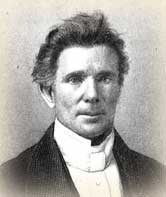“But the wisdom from above is first pure, then peaceable, gentle, open to reason, full of mercy and good fruits, impartial and sincere. And a harvest of righteousness is sown in peace by those who make peace”. (James 3:17-18)
 Effective preparation is never accomplished in a vacuum. Readiness is a group activity. Therefore, wise preparers must pursue a kind of preparation that exhibits the character that the Apostle James praises in the proverb above. Is your preparation saturated with this kind of wisdom? How do you teach your family? How do you communicate with your neighbors? Are you peaceable and full of mercy or grumpy and always looking to pick a fight?
Effective preparation is never accomplished in a vacuum. Readiness is a group activity. Therefore, wise preparers must pursue a kind of preparation that exhibits the character that the Apostle James praises in the proverb above. Is your preparation saturated with this kind of wisdom? How do you teach your family? How do you communicate with your neighbors? Are you peaceable and full of mercy or grumpy and always looking to pick a fight?
Wisdom will always seek to practice now for the real fight later. What kind of character will be needed in a world that has lost ready access to food, clean water, and energy? What kind of wisdom will carry you through when the foundations are shaken? Selfishness, meanness, jealousy, and ambition will not serve you well in times of crisis. You need this “wisdom from above”.
Where is such wisdom to be found? It is found in the Bible and in relationship with the Lord Jesus Christ. By planting the soil of your soul with this heavenly wisdom you will find yourself reaping “a harvest of righteousness” that will yield peace.
This Day in Church History
 April 26, 1806 – Alexander Duff is born in Perthshire, Scotland. Duff was a tireless missionary and teacher in Calcutta, India. But in order to arrive at his post, he and his young wife had to endure two shipwrecks, losing everything except the clothes on their backs and a Bible and Psalm Book. After such harrowing adventures, Duff began teaching Indians under a Banyan tree in Calcutta. He labored in India for 35 years, taking only three short furloughs, due to ill health. When the Church of Scotland split, Duff sided with the Evangelical Free Church. The state Church confiscated the buildings he had worked so long to build and Duff had to start over again from scratch. He brought education to Indian females for the first time. His evangelistic success was, however, mostly limited to the “untouchables”, who were despised by the wealthier castes in India. His schools have been widely imitated.
April 26, 1806 – Alexander Duff is born in Perthshire, Scotland. Duff was a tireless missionary and teacher in Calcutta, India. But in order to arrive at his post, he and his young wife had to endure two shipwrecks, losing everything except the clothes on their backs and a Bible and Psalm Book. After such harrowing adventures, Duff began teaching Indians under a Banyan tree in Calcutta. He labored in India for 35 years, taking only three short furloughs, due to ill health. When the Church of Scotland split, Duff sided with the Evangelical Free Church. The state Church confiscated the buildings he had worked so long to build and Duff had to start over again from scratch. He brought education to Indian females for the first time. His evangelistic success was, however, mostly limited to the “untouchables”, who were despised by the wealthier castes in India. His schools have been widely imitated.









